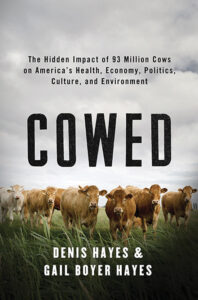How bad is the production of factory-farmed meat for animals and the environment? How much more nutritious is grass-fed meat than industrial meat? How can rotational livestock grazing sequester carbon to help slow climate change?
Meat production, human nutrition, soil health and climate change are interconnected topics that weave a complex picture. Current research tells us that managed intensive grazing, which mimics the mob-grazing movement of wild herds of animals, can produce dramatic improvements in soil health and water management. It also means more humane treatment of livestock. Plus, studies show that eating meat from wild or grass-fed animals may be the best way for us to get the essential fatty acids that are vital to optimal brain function.
Much of the recent media coverage on the environmental costs of meat production has been oversimplified and focused only on confined animals, treated with drugs and raised in feedlots. A steady flow of new research, though, is showing that the environmental and health impacts of meat from pastured animals are far better than that from the feedlot system. For a primer on this important topic, don’t miss our article The Many Benefits of Grass-Fed Meat. For more in-depth coverage, start with any of these six excellent books.
• Cowed: The Hidden Impact of 93 Million Cows on America’s Health, Economy, Politics, Culture and Environment by Denis Hayes
and Gail Boyer Hayes
to Heal the Earth by Judith D. Schwartz
• Defending Beef: The Case for Sustainable Meat Production by Nicolette Hahn Niman
• Go Wild: Free Your Body and Mind from the Afflictions of Civilization by John J. Ratey, M.D., and Richard Manning
• Grass, Soil, Hope: A Journey through Carbon Country by Courtney White
• The Soil Will Save Us: How Scientists, Farmers and Foodies Are Healing the Soil to Save the Planet by Kristin Ohlson




